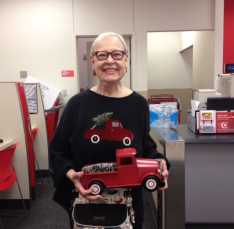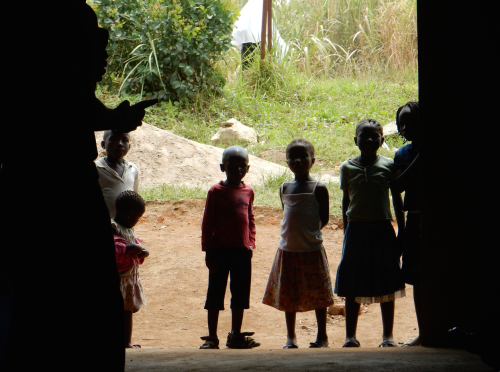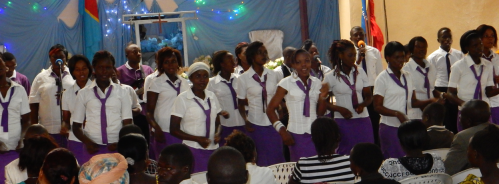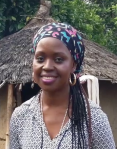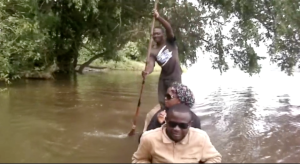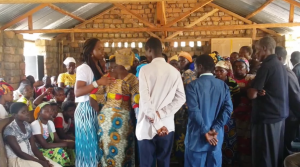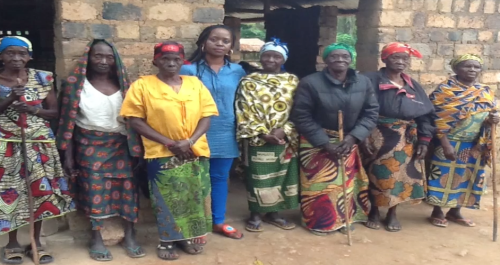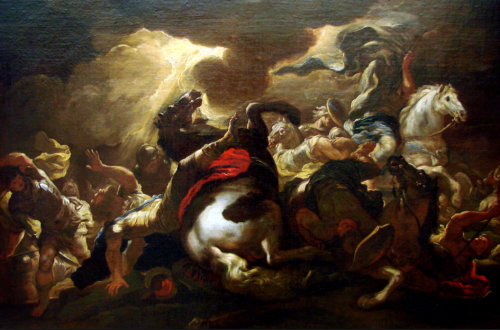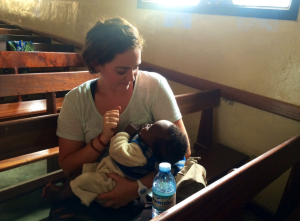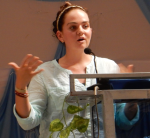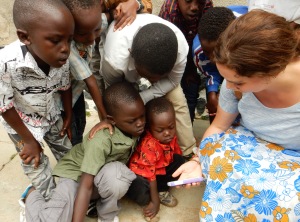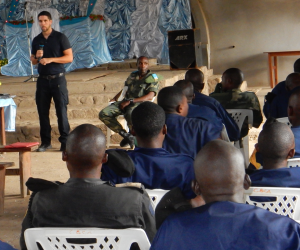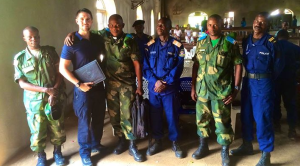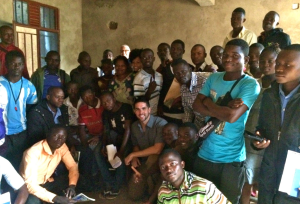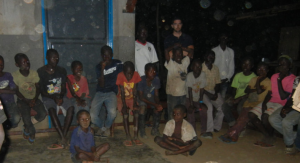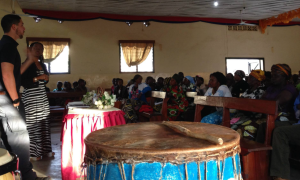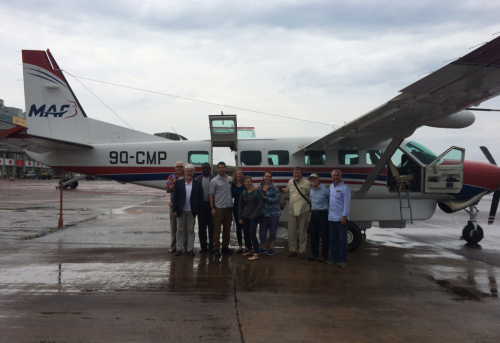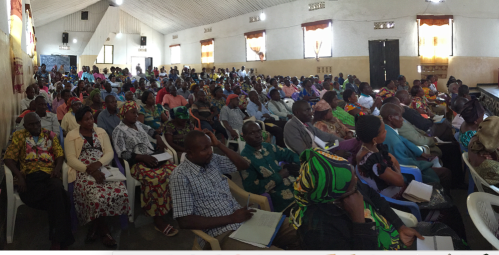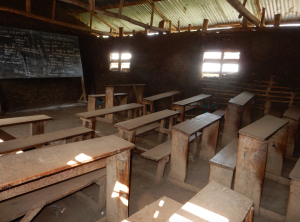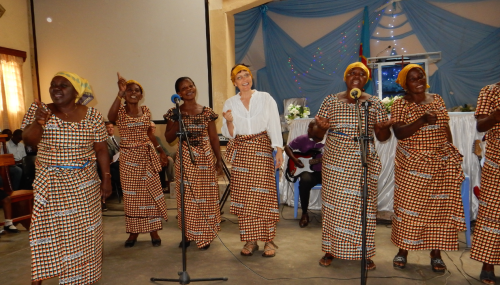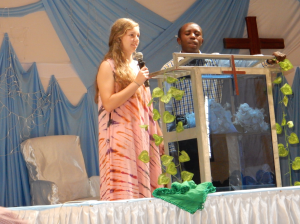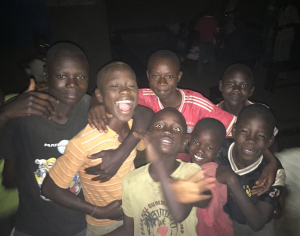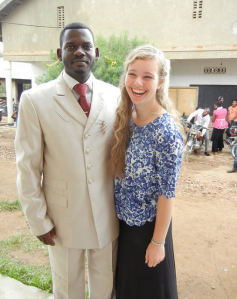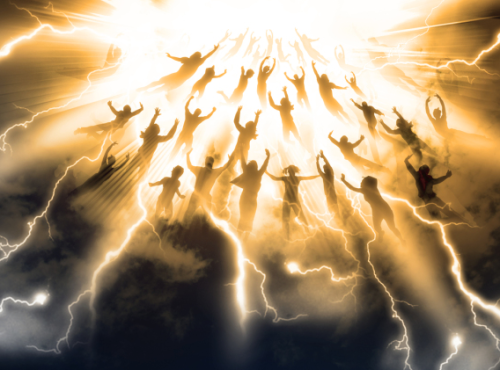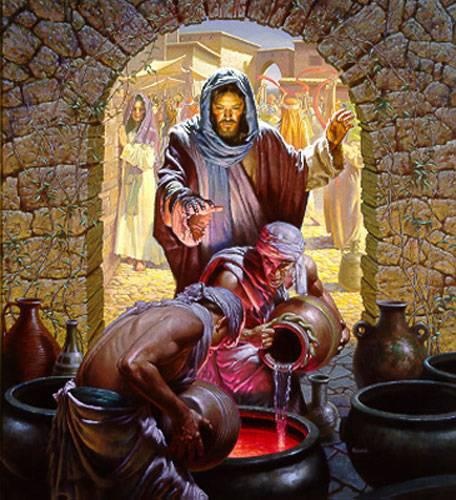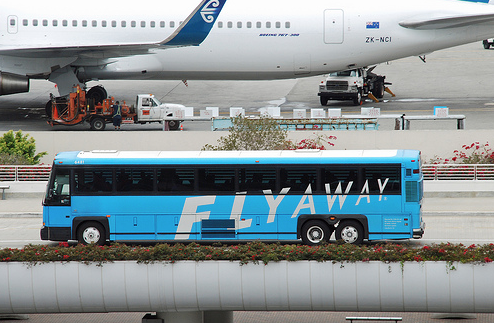
One night recently, my wife Diana and I returned from a long trip and took the Flyaway bus from the LAX airport to our home in one of Los Angeles’ suburbs. The bus was about a third full when we boarded, but quickly filled up as additional passengers came on at other stops around the airport.
I soon became aware of the conversation between a man and a young woman in the seats across from ours. Since the aisle was very narrow and the man was less than three feet away from me, I could follow snatches of their conversation, even though they were speaking softly. He looked to be in his late forties or early fifties, with an East European accent, she in her late teens or early twenties.
At first the conversation reflected that of two people meeting for the first time, he asking her questions about where she was from, her reason for coming to Los Angeles, her name, family life, likes and dislikes. She was from South America, visiting the USA for the first time, traveling alone, and contemplating attending college here.
He complemented her on her beauty, said that he was a photographer who had been responsible for giving many models and actresses their start in Hollywood, showed her his iPad photo portfolio of glamorous young women, and started pitching her on how he could do the same for her.
I glanced across at them and saw how smoothly and charmingly he was making his pitch, and how innocently and engrossed she was in what he was offering.
I suddenly became very concerned for her.
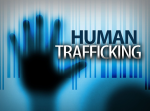 Over the years there had been many criminal cases of girls and young women coming to Los Angeles to seek their fame and fortune, only to vanish, be murdered, drugged, enslaved, and forced into prostitution here or abroad by sex traffickers. Many of them were met and befriended at train and bus terminals or at airports by smooth-talking men who convincingly weaved their webs of promises and visions of glamor, only to entrap and ultimately destroy them.
Over the years there had been many criminal cases of girls and young women coming to Los Angeles to seek their fame and fortune, only to vanish, be murdered, drugged, enslaved, and forced into prostitution here or abroad by sex traffickers. Many of them were met and befriended at train and bus terminals or at airports by smooth-talking men who convincingly weaved their webs of promises and visions of glamor, only to entrap and ultimately destroy them.
Was he one of those men? Was she one of those gullible young women? Had he targeted her as a lone traveler outside the airport? Why had he chosen to sit down beside her when there were so many empty seats when he came on the bus? Were those photos on his iPad legitimate photos that he had taken of real women, or were they copied from websites and magazines and used as his own to ensnare women?
Were my questions and concerns baseless, just wild imaginings from my jet-lagged mind? Or were they promptings from the Holy Spirit who gives us the gift of discernment and leads us into all truth? (1 Cor. 12:8-11; John 16:13)
I shared my concern with Diana, and together we kept watch through the remainder of the bus ride. Our concern grew when we saw them exchange cell phone numbers.
When we were about five minutes from the bus terminal, the bus driver announced over the intercom that passengers needed to have their bus tickets ready in order to pick up their suitcases and exit the terminal. If they didn’t have a ticket, they could use their credit cards to buy one at the terminal. Cash would not be accepted.
The young woman exclaimed, “Oh no, I only have cash!”
He assured her, “That’s all right. I’ll pay for you.”
She thanked him, and he went on to offer to give her a ride to anywhere she wanted to go.
Their conversation tapered off soon after that, and I looked over at him and saw something that startled me and deepened my concern even more—his eyes were closed, his head was tilted back against the headrest of his chair, and he sighed deeply and smiled as he gently stroked his chest, as if congratulating himself.
The image was of a man who knew that he was about to reel in his catch, that his prey was undoubtedly about to be snared. He exuded total confidence that he had caught this one.
No longer was I unsure about this man. I believed that he meant to harm her. But what was I to do?
I did not want to leave the bus terminal and leave her with this man, and I didn’t relish the idea of confronting him when we got off the bus to reclaim our luggage, but if I had to, I would. But what would I say? How would he react? No doubt, it would create a scene in front of the other passengers, bus driver, and baggage attendant.
So I prayed. I asked God to surround the young woman with his protection and to keep her from being harmed by this man. I asked God to give me the boldness and the words to intervene when we got off the bus. And I asked God to protect me from harm in what I was about to do.
 When the bus arrived at the terminal, we all disembarked to wait for the attendant to unload our suitcases from the bus. I was about to approach the man when the young woman saw a friend waving to her from behind the railing. In the friend’s hand was a bus ticket!
When the bus arrived at the terminal, we all disembarked to wait for the attendant to unload our suitcases from the bus. I was about to approach the man when the young woman saw a friend waving to her from behind the railing. In the friend’s hand was a bus ticket!
The young woman ran to the friend, hugged her, took the ticket, and went back to get her luggage.
I quickly went over to the friend and said, “Excuse me, your friend met a man on the bus, and I couldn’t help overhearing what they were talking about. Please tell her that she should not trust him and should not go anywhere with him. If she does, her life could be in danger. She should have nothing to do with him!”
The friend’s expression was one of surprise when I suddenly approached her, but as my words and urgent tone sank in, her expression brightened and she thanked me profusely.
Just as quickly, I stepped back and returned to Diana who had been watching the man hover around the young woman as she waited for her suitcase. Our luggage was the last to be unloaded from the bus, and by the time Diana and I gave our tickets to the gate attendant and headed for the taxi stand, the young woman and her friend were gone.
The man, however, was frantically trying to get his credit card to work at the automatic teller machine, which seemingly wasn’t cooperating.
During the short taxi ride to our home, I silently praised and thanked God for how quickly he answered my prayer and averted the young traveler from having to go with the man into the night. And I prayed that she would heed the warnings I gave to her friend, especially when the man undoubtedly would try to reach her on her cell phone.
Since then, I’ve continued to pray for God’s protection over her and that she might come to know Jesus Christ as her savior. And I’ve prayed that the man, whatever his intentions that night, would also repent of his sins and follow Christ.
I might never know if her life was in danger that night, but over the years, as I have grown in my faith walk with Christ, I’ve learned to obey the promptings of the Holy Spirit, for sometimes it really can mean the difference between life and death.
****
 Target had advertised a Christmas ornamental red truck, but she had been unable to find it at several Target stores. She finally went online and found one at the Glendale store and ordered it. Having to pick it up in four days or lose it, she decided to face the early morning traffic to make the trip over to Glendale from our home in Granada Hills.
Target had advertised a Christmas ornamental red truck, but she had been unable to find it at several Target stores. She finally went online and found one at the Glendale store and ordered it. Having to pick it up in four days or lose it, she decided to face the early morning traffic to make the trip over to Glendale from our home in Granada Hills.